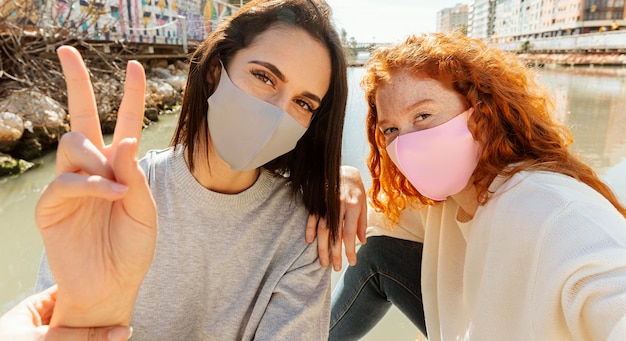
At the start of the COVID-19 pandemic, health organizations like the World Health Organization (WHO) and the Centers for Disease Control and Prevention (CDC) advised against face masks for the general public. They initially recommended masks only for those infected with the virus, caregivers of infected individuals, and high-risk groups. As they learned more about the virus, their stance changed. Now, both organizations recommend everyone, except children under two, wear masks to help slow the spread of the virus.
Wearing masks has since become an essential part of battling COVID-19. Combined with maintaining a six-foot distance in public, masks play a crucial role in reducing transmission. However, it’s important to understand which types of masks are most effective – not all provide the same level of protection. Factors like filtration and fit greatly influence a mask’s ability to block the virus.
### Choosing the Best Mask for You
When selecting a mask, two key elements are important:
1. **Filtration**: This refers to how effectively a mask can block droplets and microscopic particles. A higher filtration level decreases the likelihood of virus-carrying particles passing through.
2. **Fit**: A good fit ensures that no particles can slip in or out of the edges. Masks must cover both the nose and mouth properly to be effective.
### Types of Face Masks for Protection
#### **N95 Masks**
N95 masks are among the most effective for virus protection, capable of blocking up to 95% of tiny particles as small as 0.3 microns. Made from polyester and other synthetic materials, these single-use masks rely on tangled fibers for high filtration efficiency. A proper fit is crucial; these masks are designed to mold tightly to the face and include a nose piece to prevent air leakage. However, they’re not suitable for children or individuals with facial hair. While some N95s have exhalation valves for easier breathing, these should not be used in sterile environments, like hospital operating rooms, since the valve doesn’t filter exhaled air.
#### **Medical Masks**
Although less effective than N95s, medical masks provide decent protection by filtering 60–80% of microscopic particles in lab settings. Made from soft, breathable materials, they’re disposable and designed for single use. These masks work well to block larger droplets but might leave gaps that allow particles in, making them less reliable than N95s.
#### **Homemade Masks**
Homemade cloth masks have become popular due to limited supplies of medical masks. If made with dense materials like tightly woven cotton, they can offer protection comparable to some medical masks. Cotton T-shirts, flannel, or tightly woven dish towels are effective fabric options. Homemade masks should have at least two layers and fit snugly, covering the nose and chin. They can also be customized with built-in pockets for filters like coffee filters or paper towels, which provide additional protection. However, ensure the materials used are both breathable and safe.
### Frequently Asked Questions About Masks
**How do masks work?**
Masks block respiratory droplets sent into the air when someone talks, coughs, or sneezes. By trapping these droplets, masks reduce the spread of the virus to or from the wearer.
**Can masks fully protect against COVID-19?**
No mask is 100% effective, but wearing one adds an extra layer of protection, especially in situations where social distancing is difficult. Masks should always be combined with other precautions like handwashing and distancing.
**What’s the best fabric for cloth masks?**
Tightly woven materials like cotton, silk, or linen provide the best protection. Masks with at least two layers are most effective at trapping particles.
**Should masks be comfortable?**
Yes, comfort matters. A well-designed mask should balance filtration and breathability so it can be worn for extended periods without causing irritation.
**Are masks washable?**
Yes, cloth masks should be washed after each use. Wash them with warm water (around 140°F) or by hand if they have metal nose pieces.
### Final Thoughts
In the fight against COVID-19, face masks are a key defense tool. However, choosing the right type of mask based on your needs is essential. While N95 and medical masks should be prioritized for high-risk individuals, cloth and homemade masks are great alternatives for the general public. Whatever type of mask you wear, ensure it fits well and is used consistently, paired with other safety measures like handwashing and social distancing.